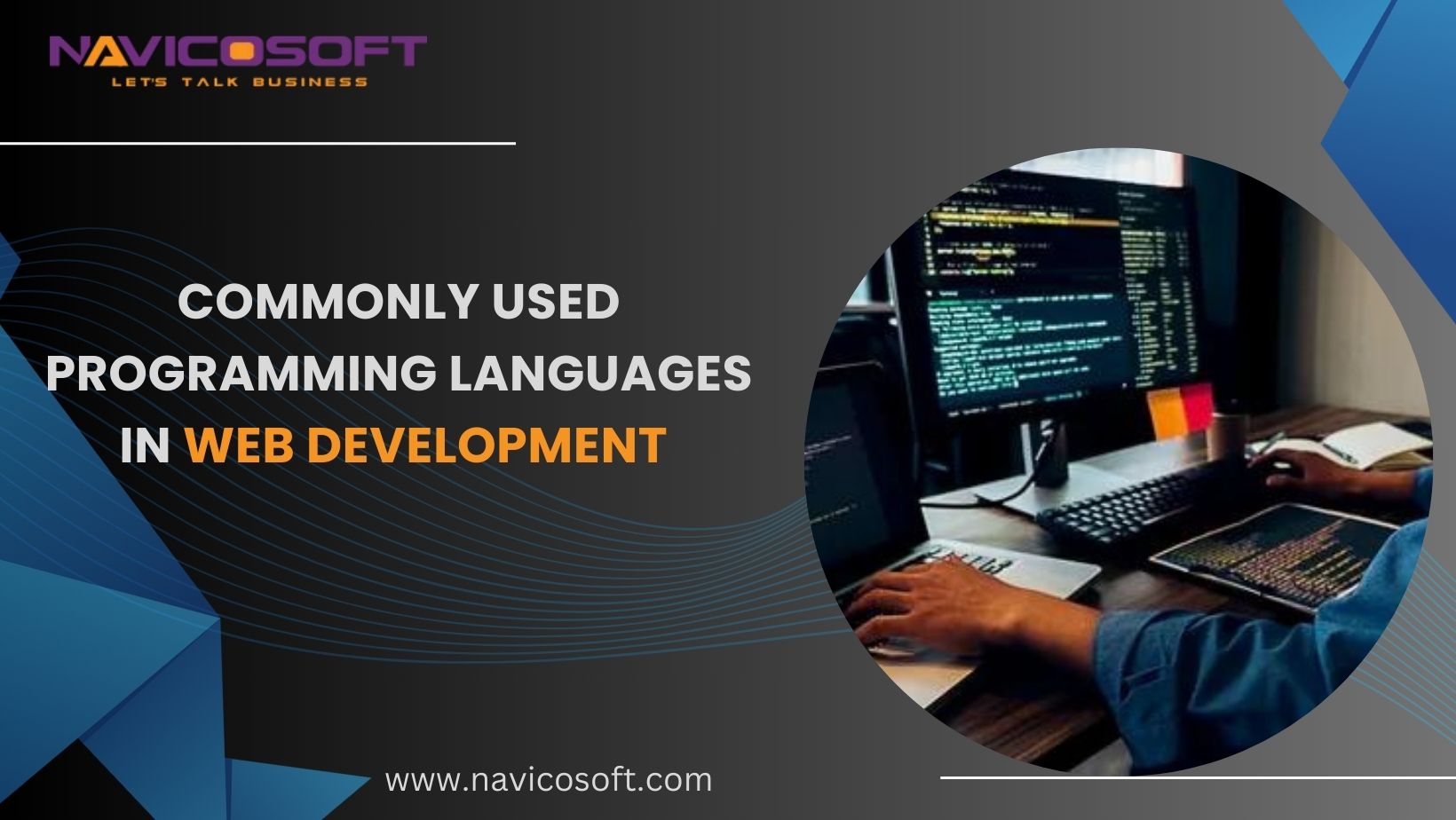Web development is a dynamic field that relies on a wide range of programming languages to create websites and web applications.
In fact, the choice of programming language can significantly impact a project’s development speed, scalability, and functionality.
So, in this article, we will explore some of the most trendy programming languages in web development, highlighting their strengths, use cases, and why they are popular choices among developers. Firstly, we have to know what is a programming language.
The Significance of Programming Languages in Web Development
Programmers use programming languages as formal systems to communicate instructions to a computer.
In addition, they consist of a set of rules and syntax that permit developers to write code, which is then translated by a computer into executable instructions.
So, programming languages are essential for creating software, websites, apps, and other computer programs.
Common examples that web development services use include Python, JavaScript, Java, C++, and many others, each with its own purpose and strengths.
Hence, the following are some commonly exercised programming languages in web development:
- HTML (Hypertext Markup Language)
HTML is the backbone of web development. However, it is not a programming language in the traditional sense but a markup language used for structuring content on the web.
HTML provides the basic formation for web pages, defining elements like headings, paragraphs, images, links, and forms.
Hence, every web developer needs to have a strong understanding of HTML as it forms the foundation for web documents.
- CSS (Cascading Style Sheets)
CSS is another essential technology in web development. Developers use CSS to control the presentation and styling of web pages.
With CSS, developers can define layout, colors, fonts, and responsive design, making websites visually appealing and user-friendly.
HTML and CSS often go hand in hand, with HTML providing the structure and CSS handling the presentation.
In short, Developers use CSS to style and format the visual appearance of a web page. It allows developers to control the layout, colors, fonts, and other design elements.
- JavaScript
JavaScript is a versatile and powerful scripting language used for adding interactivity and dynamic behavior to websites.
In addition, it enables developers to create interactive forms, manipulate the DOM (Document Object Model), handle user input, and communicate with web servers through AJAX requests.
All modern web browsers support JavaScript, which makes it a fundamental language for front-end development.
- Python
The next in line of common programming languages in web development is none other than Python.
Python’s simplicity and readability have made it a popular choice for web development. Frameworks like Django and Flask simplify the process of building robust web applications.
Also, Python is popular for its versatility, allowing developers to work on both the front end and back end of web projects.
Therefore, C# is also in wide use in data science, machine learning, and automation, making it a valuable language for full-stack developers.
It has a wide range of frameworks and modules available, such as Django and Flask, which simplify web development tasks.
- Ruby
Ruby is the programming language behind the Ruby on Rails framework, often referred to as Rails.
Developers know Rails for its developer-friendly convention and its ability to facilitate rapid development.
It encourages the use of best practices and conventions, making it an excellent choice for building scalable web applications.
Ruby on Rails has a strong community and a vast ecosystem of libraries and plugins.
- PHP
PHP has been a staple of web development for many years, powering a significant portion of the web.
It is a server-side scripting language drawn for web development. Developers commonly use PHP to build dynamic websites and web applications.
It integrates seamlessly with databases like MySQL and PostgreSQL, making it suitable for content management systems (CMS) like WordPress, Drupal, and Joomla.
- Java
Java is a versatile, cross-platform language often associated with enterprise-level web applications.
Developers use it in combination with frameworks like Spring to build robust and scalable back-end systems.
Java’s strong typing and object-oriented nature make it suitable for large and complex web projects.
Developers commonly use it in the development of web services and APIs. Moreover, developers often choose C# for enterprise-level web applications and Windows-based server environments.
- C#
Another top-class language counted among the common programming languages in web development is C#.
C# is a Microsoft-developed language that is commonly used for raising web applications on the .NET framework. ASP.NET is a popular web development framework that leverages C#.
C# is known for its robustness, security features, and integration capabilities with Microsoft technologies.
- TypeScript
TypeScript is a superset of JavaScript that builds on the static typing to the language.
It has gained popularity in recent years for its capacity to catch errors at compile time and improve code maintainability in large web projects.
Developers use TypeScript in conjunction with popular front-end frameworks like Angular and React to enhance the development experience and produce more reliable code.
- Go (Golang)
Go is commonly referred to as Golang. It is an open-source programming language established by Google.
However, Go is known for its simplicity, speed, and efficiency, making it well-suited for building high-performance web applications and microservices.
It has gained popularity in web development due to its ability to handle concurrent tasks effectively.
- Kotlin
Kotlin is a modern, statically typed programming language developed by JetBrains.
Hence, it is an officially supported language for Android app development and has also gained traction in web development.
Developers use this language with frameworks like Ktor to build web applications and APIs. Its concise syntax and seamless interoperability with Java make it a compelling choice for developers.
- Rust
Rust is a systems programming language comprehended for its sharpness in safety and performance.
While not as commonly used as other languages on this list, it has found its niche in web development, particularly in areas where security and performance are critical.
People use Rust to build web servers, browser engines, and other low-level components.
Conclusion
So, this article discusses the common programming languages in web development. Web development offers a diverse landscape of programming languages, each with its strengths and purposes.
The choice of programming language depends on elements such as project requirements, developer expertise, and performance considerations.
In practice, many website development services and web developers work with multiple languages and frameworks, specializing in full-stack development to create dynamic and feature-rich websites and applications.
Therefore, as the web development field continues to evolve, new languages and frameworks emerge, further expanding the possibilities for creating innovative and interactive web experiences.
In addition, regardless of the language chosen, web developers play a pivotal part in shaping the digital world.
In fact, the choice of language depends on factors such as project requirements, personal preferences, and the specific needs of the development team. Hence making the web more accessible and functional for users worldwide.



